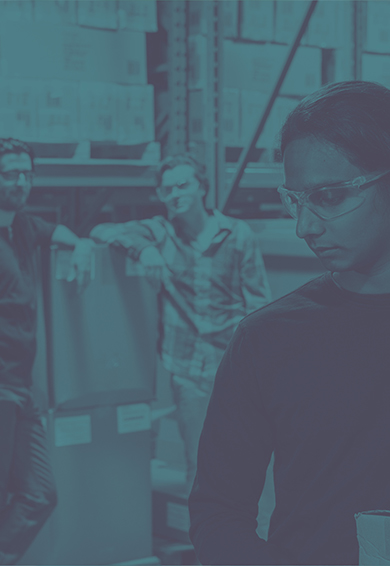About this campaign
The aim of the 'Together Against Hate' campaign is to raise awareness of hate crime and the harm it does to members and their families.
How to support the campaign
There are a range of ways to get involved in the campaign.
Pledge your support – Sign the online pledge against hate crime: to say not in my name, not in my workplace, not in my community. We can use the evidence to back the campaign.
Take our survey – It’s important to get as many workers as possible to fill out our survey so we can shine a light on their experiences.
Share your story - If you've experienced a hate crime, help us raise awareness by sharing your story. Contact the magazine team at [email protected]
Check out our reps briefing - Run a campaign event in your store.
National Hate Crime Awareness Week occurs every year in October. It seeks to shine a light on the issue faced by many in the UK.
The Together Against Hate campaign runs all year round, but you may want to support raising awareness during the week by holding a campaign event in your workplace.
Defining hate crimes
Many of our members have experienced hate crime either at work or in their communities, with Black and Asian and LGBT+ members being at particular risk.
You can also be a victim of hate crime if the perpetrator thinks you have one of these characteristics, even if you don’t. So for instance you could be attacked because someone thinks you are gay or Muslim or transgender even if you are not. This means anyone can experience hate crime.
Hate crime is a growing problem with a rise in the number of incidents over the last five years across the UK.
The term 'hate crime' means any criminal behaviour where the perpetrator (the person carrying out the crime) is motivated by hostility or demonstrates hostility towards the victim's disability, race, religion, sexual orientation or transgender identity. These aspects of a person's identity are known as 'protected characteristics'. It can include verbal abuse, intimidation, threats, harassment, assault and bullying, as well as damage to property.
- The Crown Prosecution Service
An injury to one is an injury to all
The recent surge in extreme right-wing activity has led to an alarming rise in incidents of race hate crime.
Usdaw recognises that the far right consistently targets its hate at specific groups including Black, ethnic and religious minority groups, migrants and refugees, women, LGBT+ people and trade unionists.
Scapegoating ‘minorities’ has long been used as a tactic to divert public attention away from government failures to address pressing social issues and rising inequalities, dividing working people, setting them against one another and fanning the flames of racism and hatred.
The surest way to defeat the far right is by delivering decent jobs, good wages, strong and enforceable workplace rights, well-funded public services and decent homes. So now more than ever, the Labour Government's plan to make work pay and deliver justice and equality for working people really matters.
The rise of the far right is deeply troubling but can be challenged. Throughout our history trade unions have been at the forefront of the struggle against the far right and it’s attempt to divide working people using narratives of hate and blame.
In order to effectively combat this, we need to be clear as a movement that, in line with our core value of equality, we stand together with all workers and oppose all forms of hate without exception.
Unity is strength. Solidarity.
How to report a hate crime
In an emergency – where a hate crime is in progress or someone is in immediate danger – you should always call 999.
You can report a hate crime directly to the police by calling the non-emergency number 101.
If the incident happens at work, talk to your Usdaw rep and your manager.
Black History Month
Every year, October 1 marks the start of Black History Month.
Each year, there is a different focus; this year's is 'Standing Firm in Power and Pride'. It gives everyone the opportunity to celebrate the continued achievements and contributions of Black people and communities to the UK and around the world.



